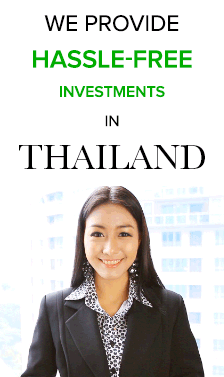U-tapao airport bus links launched
Three bus routes linking U-tapao with three eastern provinces were introduced on Friday to serve passengers and promote the airport in Rayong.
The Land Transport Department and the Royal Thai Navy jointly introduced the bus routes from the airport to Trat, Ranong and Chon Buri.
The service to Trat includes Chanthaburi on one of its stops, while the Chon Buri route also stops in Pattaya and Sri Racha district.
The routes are operated by private transport firms using air-conditioned buses with GPS tracking systems and another system to monitor their speed.
Department director-general Sanit Promwong said the new services would benefit passengers and promote the airport as a new commercial aviation hub for eastern provinces.
The department plans to introduce buses to serve all 34 airports across the country, including Nakhon Si Thammarat, Surat Thani and Trat.
U-tapao Rayong Pattaya airport is located on navy land and operated by the Airports Department under the Transport Ministry. The government plans to use it to promote tourism in Pattaya and other eastern provinces. It is also expected to take on a bigger role as the Eastern Economic Corridor industrial zone gains momentum.
The government is also planning a 225-billion-baht high-speed train line linking U-tapao with Suvarnabhumi and Don Mueang airports. Bidding is expected to open this month with a winner to be announced in November. The train service is scheduled to begin operating in 2023.
source: Bangkok Post
Thailand Openly Airs Hope to Join Trans-Pacific Partnership
Japanese Minister of Free Trade, Mr. Toshimitsu Motegi winded up his meeting with Deputy Prime Minister Mr. Somkid Jatusripitak. Motegi told reporters that Thailand has made it clear that it is largely interested to take part in the Trans-Pacific Partnership (TPP) with 11 other countries in the region alongside Australia, Brunei, Canada, Chile, Japan, Malaysia, Mexico, New Zealand, Peru, Singapore and Vietnam, after United States withdrew in 2016. The 11 countries together make up 40% of the world’s global economy after signing the CPTPP agreement this year March.
Motegi expressed that Japan welcomes Thailand in joining TPP 11 and hopes to increase the number of members by become an alliance for new members who wish to join. Motegi indicated that Thailand’s participation in the TPP 11 will likely help prompt and strengthen the economy of the TPP partnership. Thailand is one of the major manufacturers for Japan’s automobile industry which is a major exporter of automobiles to the rest of the Southeast Asia and Pacific region. The wholesale and service sectors in Thailand has also largely contributed to the economy, making Thailand an important contributor if it joins the TPP 11.
Being the largest economy in the present TPP agreement, Japan wishes to increase the number of members in order to expand and strengthen the TPP agreement and global partnerships.
TPP 11 will have its first conference in June or July with its delegates from each of the countries to discuss the policy and plan to recruiting new members. Participation must be approved by each of the countries before joining. The earliest date for such to take place is estimated to be in 2019. Motegi hopes that Thailand’s participation will further prompt the United States to consider rejoining the trade pact.
Source: Bangkok Post, Sina Beijing
Thailand’s Economy Remained Strong In Q1 2018
The merchandise exports reached 22.363 billion U.S. dollars for March 2018, said Pornpen, adding that despite a high 2017 base, the value of March exports was driven by steady economic growth seen in Thailand’s trade partners.
Overall economic activity in the first quarter of 2018 continued to expand from the previous quarter, driven mainly by the solid growth momentum of merchandise exports and tourism sector. Private consumption continued to improve from spending in all categories, consistent with the expansion of manufacturing production in both domestic and export-related.
The value of merchandise exports continued to expand with a growth of 6.3 percent compared
to the same period last year.
Excluding gold, the value of merchandise export grew by 6.7 percent, and expanded in most product groups. The expansion was on the back of:
(1) continued improvement in external demands for products such as chemical and petrochemical products, automotive and parts,electronic products especially air conditioners, mobile phones, and integrated circuit (IC);
(2) continued increase in crude oil prices which contributed to the increase in exports of petroleum related
products
(3) increase in exports from industries which recently expanded their production capacity contributed to the increase in exports of hard disk drives (HDD).
However, export value of agricultural products contracted, due mainly to the decline in rubber prices and production, as a result of the high base effect from last year’s flood in the Southern provinces, coupled with the measures from the International Tripartite Rubber Council (ITRC) restricting export quota.
The number of foreign tourist arrivals registered a 16.3 percent annual growth and continued to expand for almost all nationalities, especially Chinese tourists, consistent with the opening of new airline routes from China’s secondary cities to Thailand.
Private consumption indicators expanded from the same period last year in almost all categories, except semi-durable goods which slightly contracted after having accelerated growth in earlier periods.
Public spending, excluding transfers, contracted from the same period last year due to decline in capital spending as a result of lower disbursement of the Department of Highways and high base effect from strong disbursement last year. However, current spending expanded mainly from an increase in civil servants’ compensation.
Source: Thailand Business News
Thailand to Expand Tourism Sector, Undergoes Multiple Airport Expansion
The Airports of Thailand Public Company Limited is aiming for an ambitious challenge: in collaboration with the Thai government, the company will be expanding Bangkok’s Suvarnabhumi and Don Mueang International Airport to accommodate for a population as large as the Republic of Korea.
The President of Airports of Thailand Public Company Limited, Mrs. Nitinai Sirismatthakarn states, the expansion plan will proceed to 2022 to increase the total accommodation from 75 million visitors in Bangkok’s Suvarnabhumi Airport to 90 million visitors and Don Mueang International Airport to increase its accommodation to 40 million visitors. The company also runs several other airports in Thailand, including Phuket International Airport. Chiang Rai and Chiang Mai airport will both receive a series of expansion and renovation with a total investment of 10 billion Baht to be completed by 2022.
“We are aiming to invest into 6 different major airports in Thailand in the next ten years with 6 billion USD,” Mr. Nitinai acclaims in an interview last year. The Suvharnabhumi Airport will receive a new look by 2021 when the third runway is complete along with a new midfield satellite terminal by 2022.
Tourism is one of the major pillars and the powerhouse to Thailand’s economy, and is one of the main reasons to pressurize the government and the Airports of Thailand Public Company Limited to renovate the airports to accommodate for the country’s economic movement. With the new structures to welcome increase flights, the company may be able to uphold its revenue by 50% per year once the expansion completes by 2020.
In 2017, the stock of Airports of Thailand Public Company Limited increased by 18%, 3% more than the average SET index in Thailand. As of now, the company’s revenue in the last 12 months has increased by 28.7 times, more than the average of 22.5 times in the last 5 years.
Suvarnabhumi International Airport’s new midfield satellite terminal will be able to accommodate 60 million visitors and become a major structure at the airport to accommodate the rising demand from tourism. The newer terminal, will be able to provide facilities for an additional of 30 million visitor.
The Thai government has been propelling the country’s infrastructure projects to craft Thailand into the second largest economy in South East Asia. Tourism accounts for 18% of Thailand’s GDP, and it remains critical for the Thai economy to expand starting with its airport expansion initiatives.
Source: Bloomsberg Newsweek, China News
Alibaba to invest $320 million in Thailand
Alibaba is investing $320 million in Thailand as the e-commerce giant aims to tap Chinese consumers’ appetite for the Southeast nation’s agricultural goods and for its tourism market amid growing competition from rivals.
China’s biggest e-commerce company is investing more than 10 billion baht ($320.20 million) in a “digital hub” in the Thai military government’s much-touted Eastern Economic Corridor (EEC), government officials said.
Deputy Prime Minister Somkid Jatusripitak told reporters on Thursday that Alibaba’s digital hub will be a platform that connects Thai agricultural products to the Chinese and global markets.
Alibaba-backed Lazada is already present in Thailand and is one of the most popular e-commerce businesses in the nation of 69 million.
Chinese rivals of Alibaba are also beefing up their presence in Thailand and Southeast Asia.
In September, China’s second-biggest e-commerce firm JD.com Inc said it will form a $500 million joint venture in e-commerce and financial technology with top Thai retailer Central Group.
And Kasikornbank Pcl said in 2016 it has formed an alliance with Tencent Holdings’ popular mobile messaging app WeChat to provide electronic payment services to Chinese visitors in Thailand.

“Given Thailand’s unique strengths in people and culture, we are confident of its future,” Alibaba founder Jack Ma told reporters in Bangkok.
Ma, who met with Thai Prime Minister Prayuth Chan-ocha, signed four memorandums of understanding with the Thai government on Thursday, covering trade, investment, support for e-commerce and tourism.
Chinese tourists make up the biggest number of visitors to Thailand. Chinese accounted for nearly one-third of last year’s record 35 million arrivals which is expected to rise this year to around 10 million from 9.8 million.
The $45 billion EEC project, situated near the Gulf of Thailand, is aimed at attracting high-tech investment and is a centerpiece of the Thai junta’s policy to boost growth.But it has struggled to attract foreign investment.
Kanit Sangsubhan, secretary-general of the EEC committee, said that Thailand hopes Alibaba’s investment in the project will result in other investments by its subsidiaries, business affiliates, and other Chinese investors.
“It builds confidence, especially among Chinese investors,” Kanit told reporters.
source : REUTERS


















